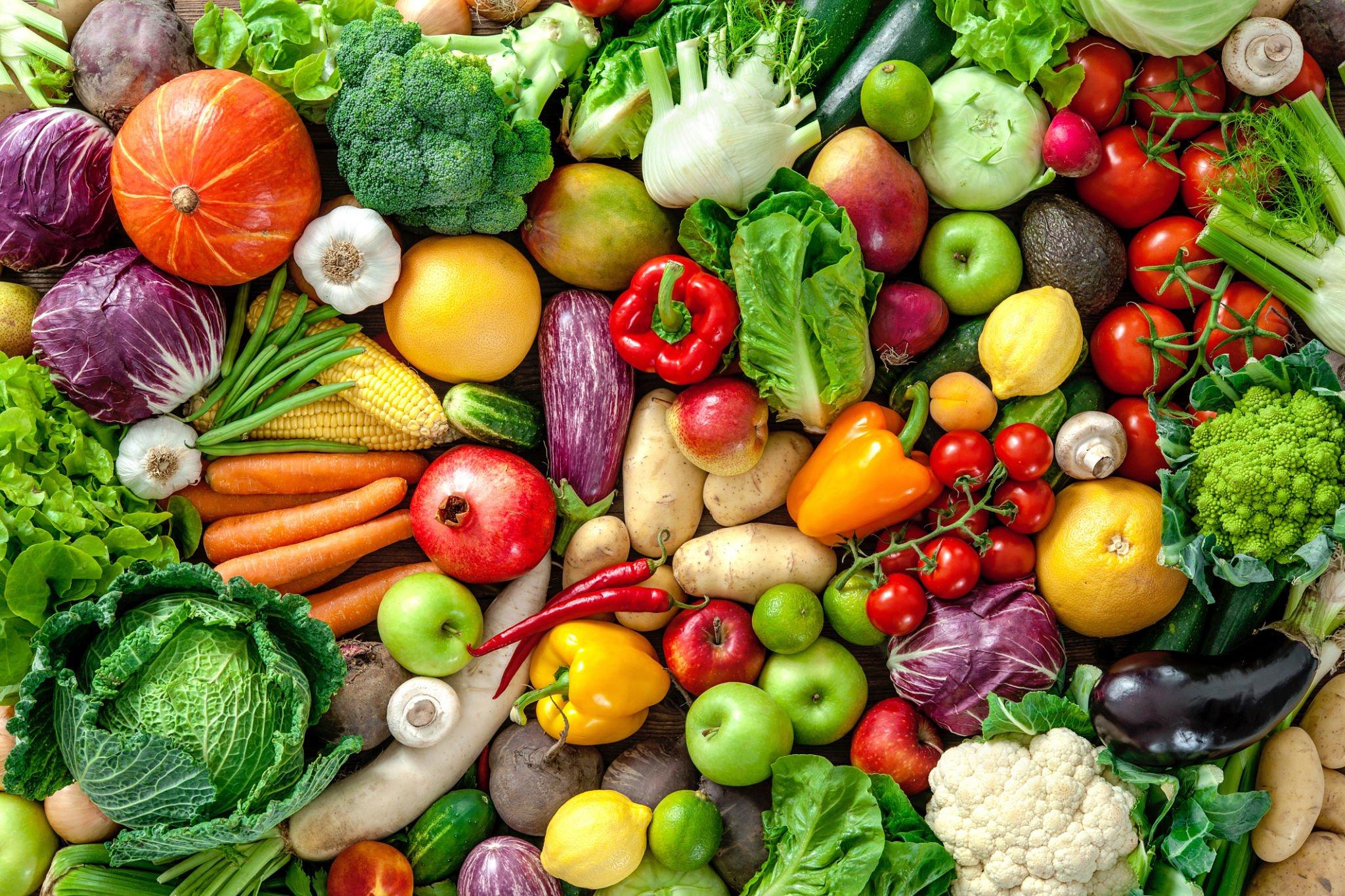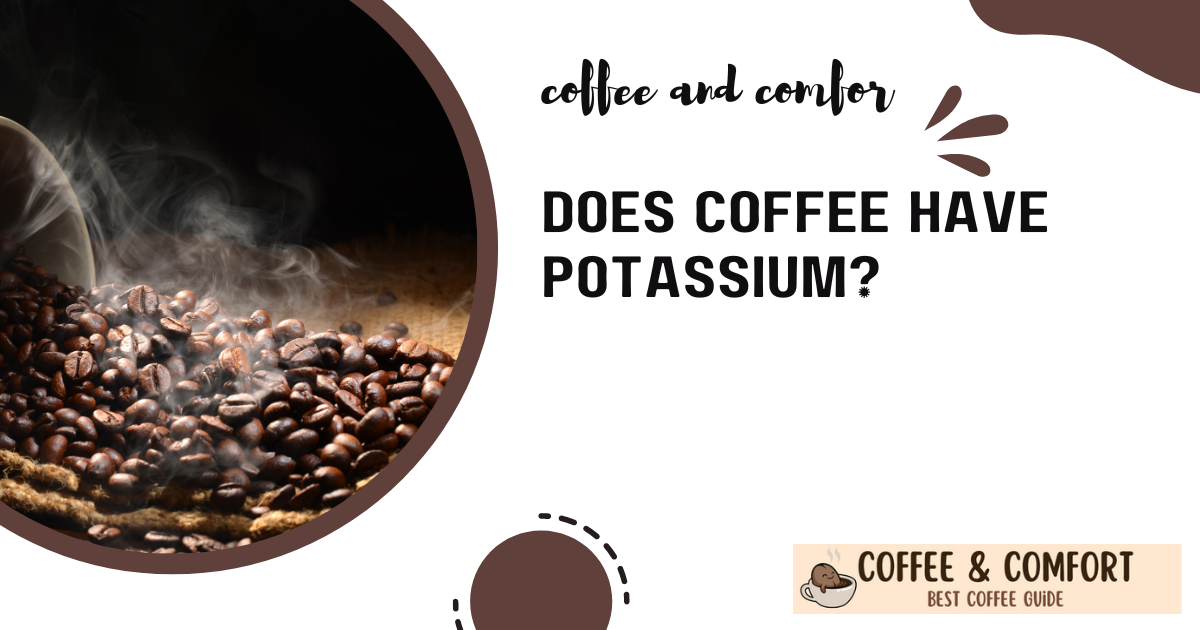Discover the surprising facts about coffee and potassium. Learn if coffee has potassium and how it affects your health. Get the answers you need now.
If you’re like most coffee lovers, you probably never thought to ask if coffee has potassium. But, believe it or not, there are some surprising facts about coffee and potassium that you should know. So, if you’re curious to find out if coffee has potassium, and what other nutritional benefits it may have, then read on to uncover the truth!
What is Potassium?
Potassium is an essential mineral found in many foods and is required for a healthy balanced diet. It is an electrolyte that helps the body move nutrients and fluids between cells, and is important for muscle contraction and nerve impulses.
Potassium also helps regulate blood pressure and is linked to lower risks of stroke and coronary heart disease.
The daily recommended intake of potassium is 4,700 milligrams, but many Americans do not get enough through their diet, so it can be beneficial to supplement with potassium-rich foods or supplements.
Does Coffee Have Potassium?
Yes, coffee does contain potassium. Potassium is an essential mineral
in many foods and beverages, including coffee. The exact amount of potassium in coffee can vary depending on factors such as the type of coffee bean, the brewing method, and the serving size.
On average, an 8 oz cup of brewed coffee contains about 116 milligrams of potassium.
This is about 2.5% of the recommended daily intake for adults. However, it’s important to note that while coffee contains potassium, it is not a significant mineral source.
How Much Potassium is in Coffee?
Coffee contains small amounts of potassium, with a cup of brewed coffee containing around 10 milligrams.
However, this amount of potassium is relatively insignificant compared to the recommended daily intake of 4,700 milligrams. Therefore, coffee alone should not be relied upon as a source of potassium.

Benefits of Potassium in Coffee
Although coffee does not contain significant amounts of potassium, it does contain other beneficial nutrients. It is a source of antioxidants, which can help protect cells from damage.
Coffee may also have a positive impact on cognitive performance, mood and energy levels.
Furthermore, coffee can act as an appetite suppressant, which can be useful for those trying to lose weight.
Potential Risks of Consuming Too Much Potassium
If you consume too much potassium, it can lead to a condition called hyperkalemia. This is a condition in which there is an excess of potassium in the blood, which can cause a range of symptoms including muscle weakness, fatigue and confusion.
If left untreated, it can be dangerous and potentially lead to cardiac arrest. It is therefore important to be aware of your potassium intake and not to rely solely on coffee for your daily intake.
Alternatives to Coffee for Potassium Intake
If you are looking for an alternative to coffee for your potassium intake, there are plenty of other sources of potassium out there.
Fruits and vegetables are especially good sources of potassium, with avocados, bananas, potatoes and spinach all providing good levels.
Other sources include nuts, legumes, fish, dairy products, whole grains and seeds.

Frequently Asked Questions (FAQ)
Q1: Does coffee contain potassium?
A1: Yes, coffee does contain potassium. The amount of potassium in coffee varies depending on the type of coffee and the brewing method used. Generally, a cup of brewed coffee contains between 88-175 mg of potassium.
Q2: What are the health benefits of potassium in coffee?
A2: Potassium is an essential mineral that helps to regulate blood pressure, maintain fluid balance, and support healthy nerve and muscle function. Consuming potassium-rich foods, such as coffee, can help to reduce the risk of stroke, heart disease, and other health conditions.
Q3: Is there a difference between the amount of potassium in regular and decaffeinated coffee?
A3: Yes, there is a difference in the amount of potassium between regular and decaffeinated coffee. Generally, regular coffee contains more potassium than decaffeinated coffee.
Q4: Is there a way to increase the amount of potassium in coffee?
A4: Yes, there are a few ways to increase the amount of potassium in coffee. Adding a pinch of sea salt to your coffee can help to increase the potassium content.
Final Word
Coffee is a popular beverage that many people enjoy, but did you know that it also contains potassium? While the amount of potassium in coffee is relatively low, it can still be a great source of this essential mineral.
So, if you’re looking for a way to get more potassium in your diet, consider adding a cup of coffee to your daily routine.

My name is Michael Jones, and I’m a coffee enthusiast and expert based in the US. I run my own coffee shop, and I’m passionate about everything related to coffee. On my website, Coffee and Comfort, I share my knowledge and tips to help you elevate your coffee experience. Whether you’re a beginner brewer or a seasoned barista, I have something for everyone. I’ll teach you how to choose the right coffee beans, grind them perfectly, and brew a delicious cup of coffee at home. I’ll also share tips on how to make different coffee drinks, like lattes, cappuccinos, and espressos. But more than just teaching you about coffee, I want to help you create a coffee lifestyle that you love. Coffee is more than just a beverage; it’s a way to connect with people and enjoy the simple things in life.
